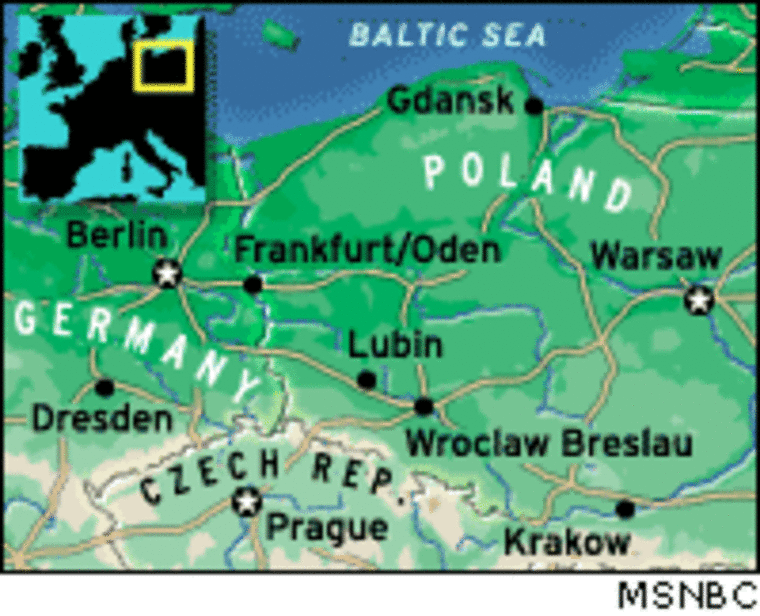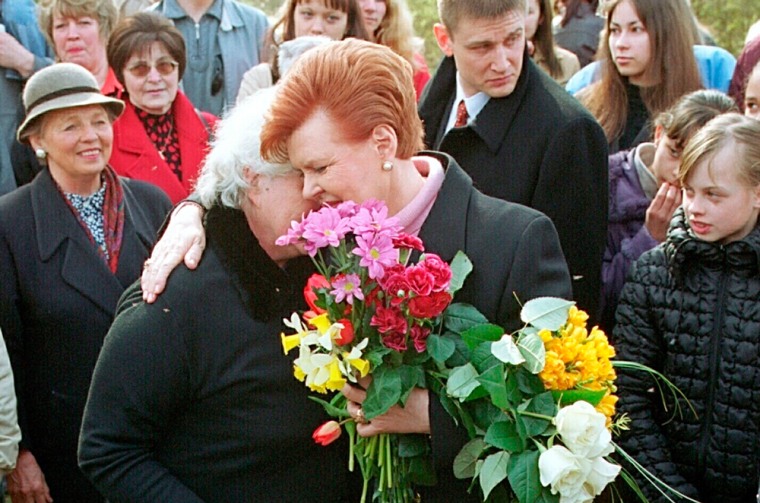Europe’s leaders embraced as the flags of 10 new members of the European Union were ceremonially raised on Saturday to mark the bloc’s historic expansion to the east, finally erasing the Cold War divide.
There were prayers, hopeful speeches, street festivals, poems, music and tears to celebrate the reunification of a continent long torn apart by war and ideological conflict.
“We must never forget that from war we have created peace. From hatred we have created respect,” Irish Prime Minister Bertie Ahern declared at the flag-raising ceremony in Dublin.
“From division we have created union. From dictatorship and oppression we have created vibrant and sturdy democracies. From poverty we have created prosperity.”
Millions across the former communist East Bloc awoke as EU citizens and, after a night of fireworks and street parties, fresh celebrations got under way to mark the accession of Poland, the Czech Republic, Hungary, Slovakia, Slovenia, Estonia, Latvia, Lithuania, Cyprus and Malta.
“We finally fulfill our dreams,” Polish President Aleksander Kwasniewski told reporters in Dublin. “We reached a moment when we can say that the task of my generation has been achieved. I can now tell my daughter, listen, it’s now up to you.”
The EU’s biggest enlargement, 15 years after the fall of the Berlin Wall, will bring new headaches with a huge wealth gap and a challenge to prevent paralysis in in the European Union's creaking institutions with so many states around the table.
Battles over power and money loom in the coming months as leaders must agree on a first constitution and a new seven-year budget for the bloc, but all that was set aside for a day on Saturday as Europe took the time to rejoice.
Spread prosperity
The leaders of Germany, Poland and the Czech Republic toasted the day in beer at a triangular border point near the German town of Zittau, before flying together to Dublin.
“Those who lived through World War II and its aftermath would not have thought this possible 60 years ago,” German Chancellor Gerhard Schroeder told a crowd of thousands in a field beside the Neisse river.
In Dublin, leaders of the 25 EU countries, representing 455 million people in the world’s biggest trading bloc, dined on Irish salmon and duck, washed down with French and -- symbolically -- Slovenian wines.
A cardinal, a rabbi and an imam joined in prayers for the united continent at a service attended by top EU officials.
Ireland’s Nobel-prize winning poet Seamus Heaney read a specially-composed poem, drawing on Celtic mythology and Greek legend, to mark the occasion.
Ahern said the new Europe faced three new challenges: to agree on a constitution to enable the bloc to work effectively, to fight terrorism, and spread prosperity across the bigger EU.
Riot police clashed with anti-globalization protesters near the Irish president’s residence where the EU leaders were celebrating.
An estimated 2,000 demonstrators waved banners saying “No borders, no nations, against a Europe of capital.”
Police used water cannon to drive back protesters.
Painful reforms
The enlargement took effect at midnight central European time, increasing the bloc’s population by 75 million, its territory by 25 percent but its gross domestic product by just five percent.
National and star-studded blue EU flags fluttered in towns and villages across eight central and east European states that endured decades of Soviet-dominated communist rule, and on the Mediterranean islands of Cyprus and Malta.
Hundreds of thousands thronged open-air parties, concerts and firework shows from the Atlantic to the Baltic and the Mediterranean as the EU threw open its gates to new members.
For East Europeans in eight of the 10 newcomers, enlargement crowns 15 years of often painful economic reforms since the collapse of communist rule.
“I see only benefits from this,” said Miroslav Prchlik, a Czech engineer standing on the short footbridge joining Germany and Poland. “The past is still a problem for the older generation. But not for younger people.”

Rejoicing was more muted in Cyprus after split referendums last Saturday meant the Greek Cypriot south of the island joins the EU despite rejecting a U.N. peace plan, while the Turkish Cypriot north remains outside despite voting “yes.”
Many East Europeans are bitter that existing EU states except Britain and Ireland have closed their doors to workers from new members for up to seven years, while some West European media have stoked fears, dismissed by EU officials, of mass migration from the east.
But architects of EU enlargement waxed emotional as they saw the political dream for which they fought so long come true.
“We are becoming part of a good family, one to which we have been related to for years but have been separated from by history,” Tadeusz Mazowiecki, Poland’s first non-communist prime minister after Solidarity won power in 1989, told Reuters.
Nearby, some 1,800 hard-line nationalists held an anti-EU demonstration, carrying banners comparing the EU to the former Soviet Union. In Riga, around 20,000 ethnic Russians rallied to protest for better protection of their rights.
